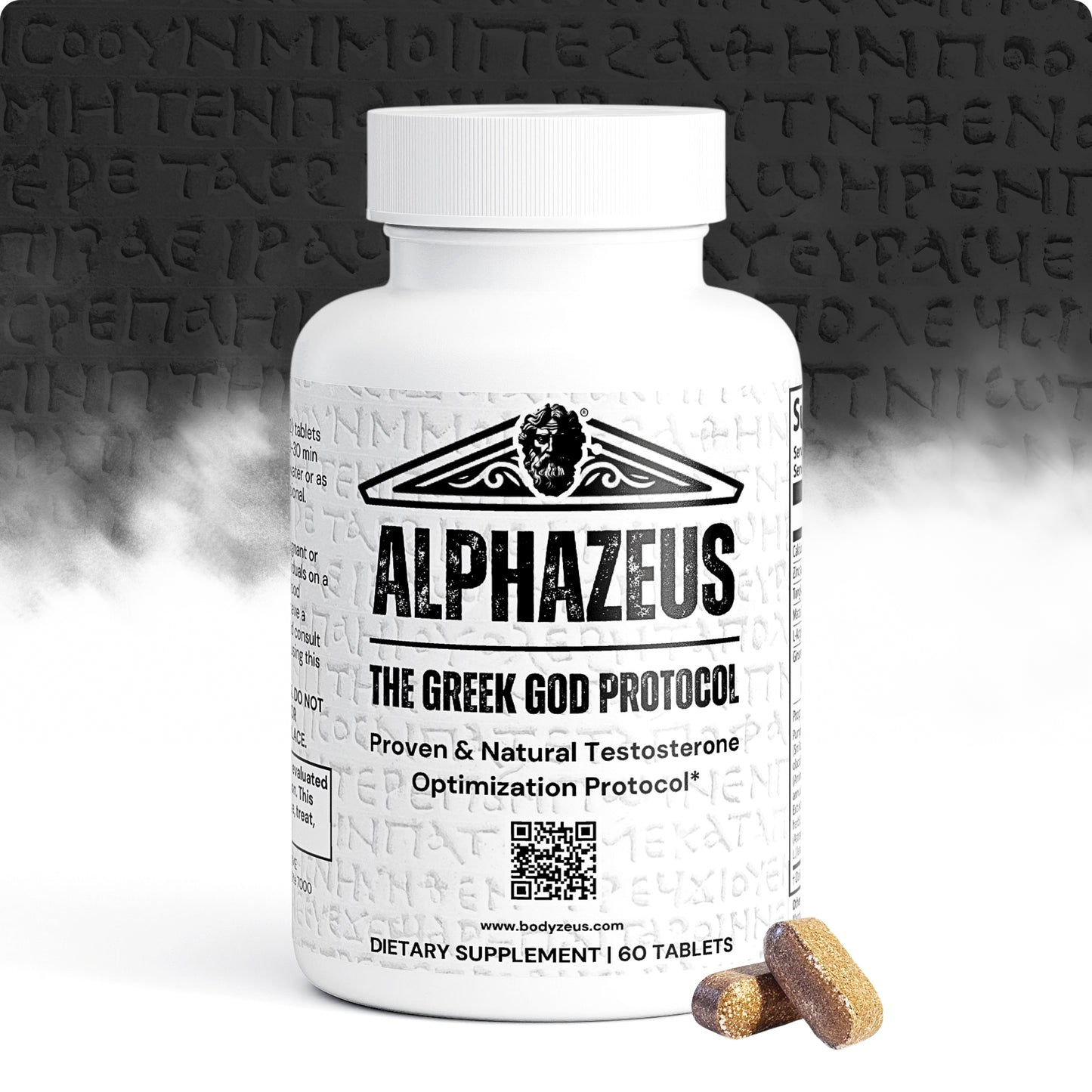Key Takeaways:
- Understanding the role of testosterone in men's health is crucial.
- Lifestyle choices significantly impact testosterone levels.
- Diet, exercise, and stress management are key natural testosterone boosters.
Testosterone plays a pivotal role in men's health, influencing everything from muscle mass and bone density to libido and overall well-being. Optimizing testosterone levels naturally involves a holistic approach encompassing diet, exercise, and lifestyle. Here's an in-depth look into effective strategies:
1. Understanding Testosterone and Its Importance
- What is Testosterone?: Testosterone is the primary male sex hormone, crucial for developing male reproductive tissues, including the testes and prostate, as well as promoting secondary sexual characteristics like increased muscle and bone mass, and body hair growth.
- Effects on Health: Beyond its role in sexual development, testosterone helps regulate fat distribution, red blood cell production, and mood. Low levels can lead to symptoms like fatigue, reduced libido, and decreased muscle mass.
2. Diet and Testosterone Levels
- Key Nutrients for Testosterone: Certain nutrients are particularly important for testosterone production. Zinc, found in oysters, red meat, and poultry, plays a vital role. Vitamin D, obtainable through sun exposure and foods like fatty fish and egg yolks, has been linked to higher testosterone levels.
- Foods to Boost Testosterone: A balanced diet rich in whole foods can aid testosterone production. Foods like tuna, egg yolks, fortified milk, and cereals for vitamin D; shellfish and beef for zinc; and leafy green vegetables, seeds, and nuts for magnesium are beneficial.
- Avoiding Foods that Lower Testosterone: Some foods and habits can negatively impact testosterone levels. Excessive alcohol consumption, processed foods, and excessive sugar intake should be limited.
3. Exercise and Testosterone
- Strength Training: Resistance and strength training exercises, like weight lifting, have been shown to boost testosterone levels, especially when performed regularly.
- HIIT Workouts: High-intensity interval training (HIIT) can also positively impact testosterone levels. These workouts involve short bursts of intense exercise followed by recovery periods.
- Overtraining Warning: While regular exercise is beneficial, overtraining can lead to exhaustion and decreased testosterone. Balancing workout intensity and recovery is key.
4. Stress Management and Its Impact on Testosterone
- The Role of Cortisol: Chronic stress leads to elevated cortisol levels, which can negatively affect testosterone. Cortisol, the body's primary stress hormone, can suppress the body's ability to produce testosterone when in excess.
- Stress-Reduction Techniques: Incorporating stress-reduction strategies like mindfulness, meditation, yoga, or even simple breathing exercises can help maintain optimal hormonal balance.
5. The Significance of Sleep in Testosterone Production
- Sleep and Hormone Regulation: Quality sleep is crucial for testosterone production. Testosterone levels rise during sleep, especially during the REM (Rapid Eye Movement) phase.
- Optimizing Sleep for Testosterone: Aim for 7-9 hours of uninterrupted sleep per night. Establishing a regular sleep schedule, ensuring a dark, cool sleeping environment, and avoiding screen time before bed can enhance sleep quality.
6. Other Lifestyle Factors Influencing Testosterone
- Maintaining a Healthy Weight: Excess body fat, especially abdominal fat, can lead to lower testosterone levels. Regular exercise and a balanced diet are key in maintaining a healthy weight.
- Avoiding Endocrine Disruptors: Certain chemicals found in plastics, personal care products, and even in some foods can disrupt hormonal balance. Minimizing exposure to these endocrine disruptors can be beneficial.
- Limiting Alcohol Consumption: Excessive alcohol intake can negatively impact testosterone levels and overall health. Moderation is important.
7. Supplemental Support for Testosterone
- Natural Supplements: Certain natural supplements like vitamin D, zinc, and magnesium may help support testosterone production. Herbal supplements like fenugreek and ashwagandha have also been suggested to boost testosterone, though research is ongoing.
- Consulting with a Healthcare Professional: Before starting any supplement regimen, it's crucial to consult with a healthcare professional, especially to ensure they don't interfere with any existing medications or conditions.
Optimizing testosterone levels naturally requires a comprehensive approach that includes a balanced diet, regular exercise, effective stress management, adequate sleep, and a healthy lifestyle. While individual needs may vary, these guidelines provide a solid foundation for maintaining optimal testosterone levels and overall health. Regular check-ups and discussions with healthcare providers are recommended for personalized advice and to address any specific concerns.



